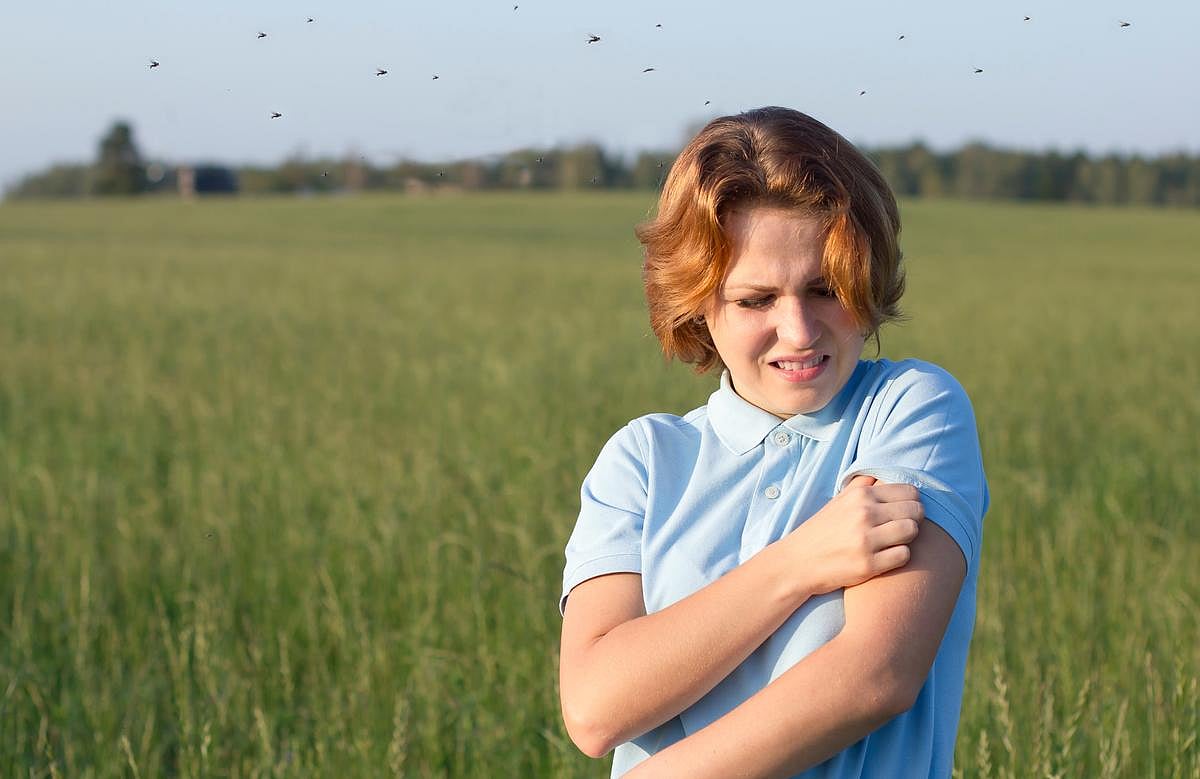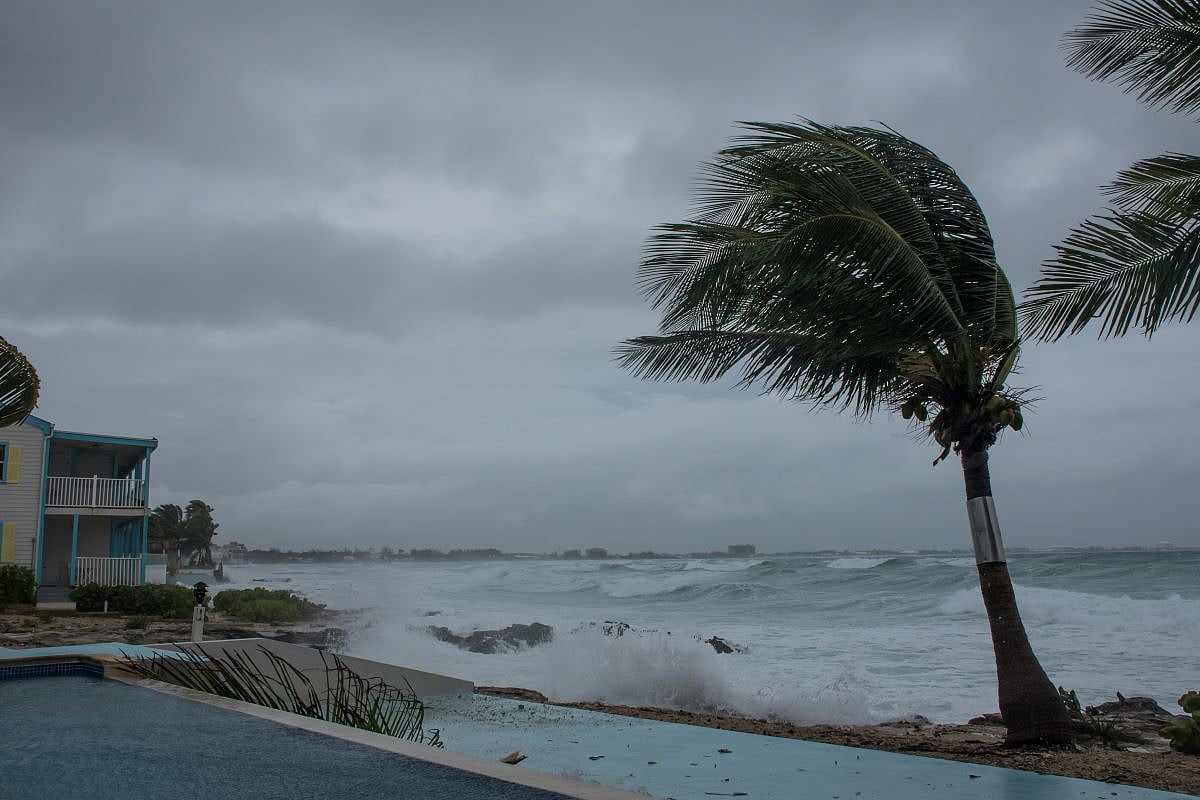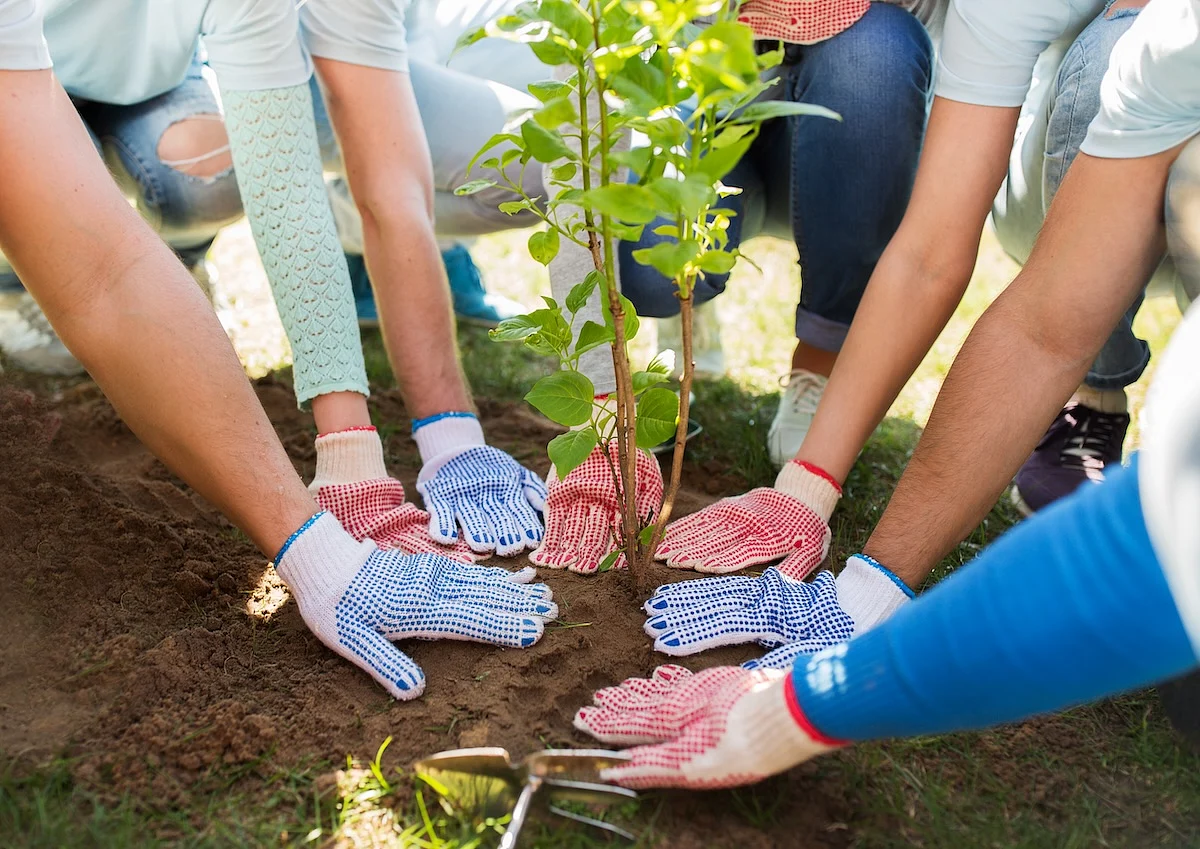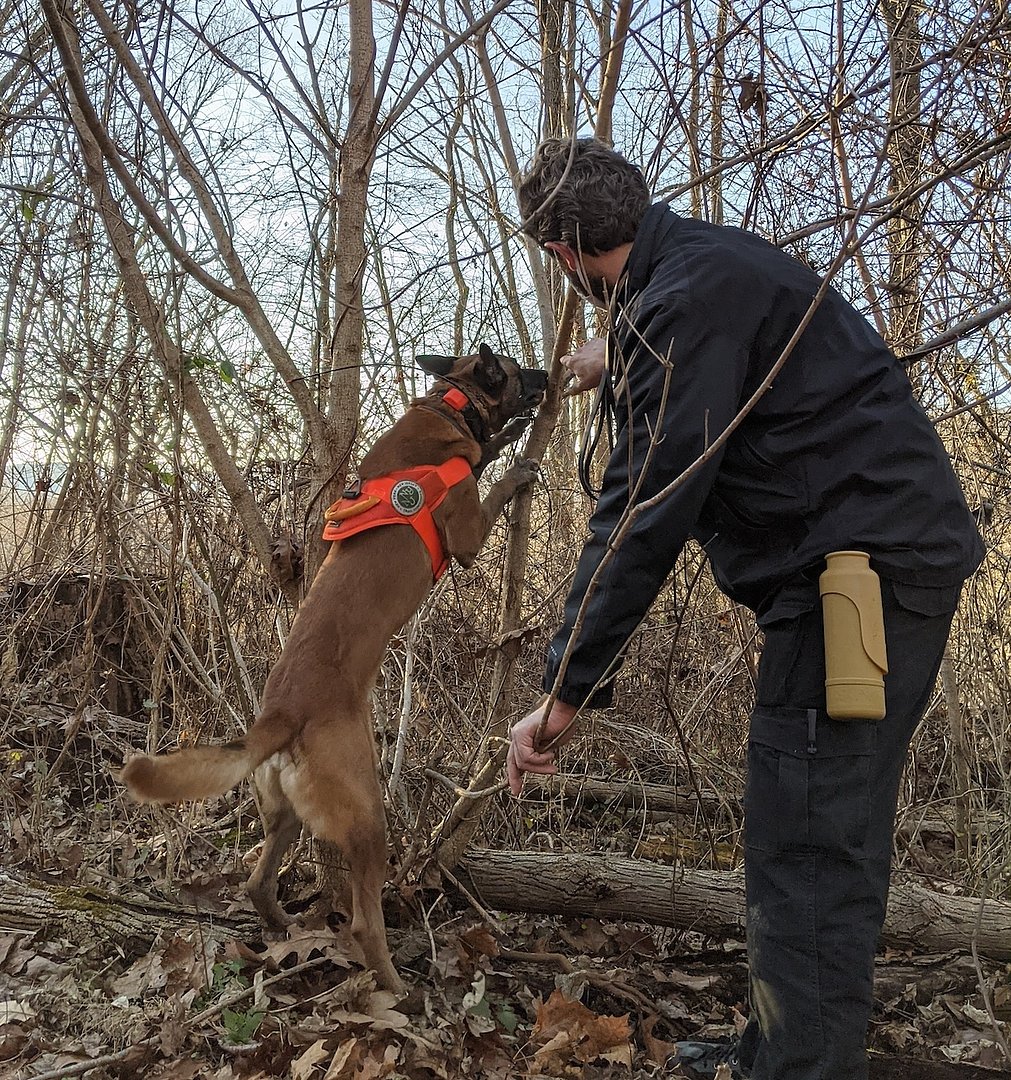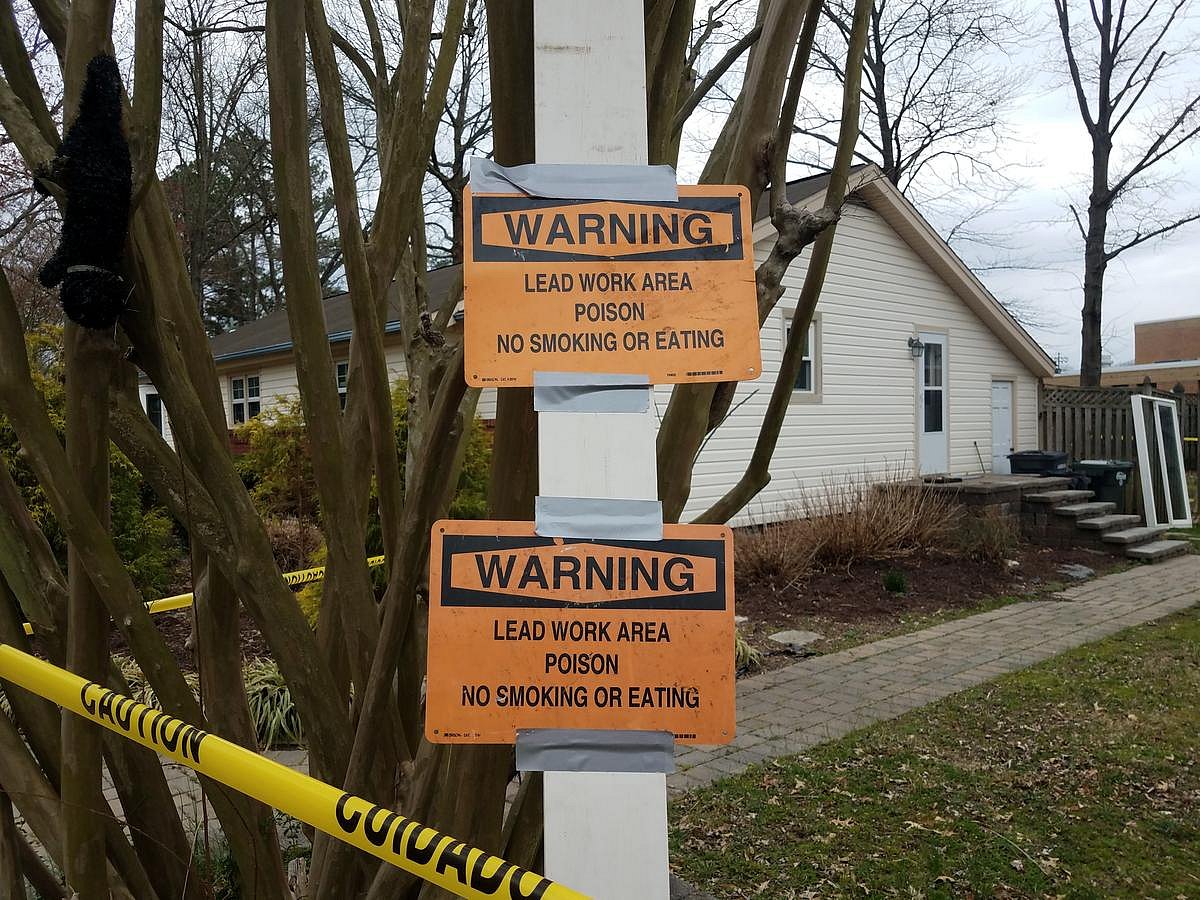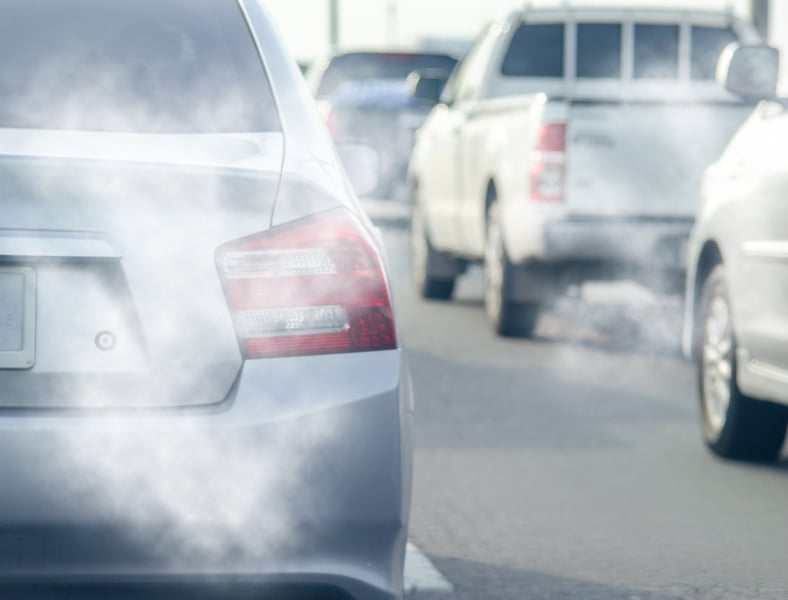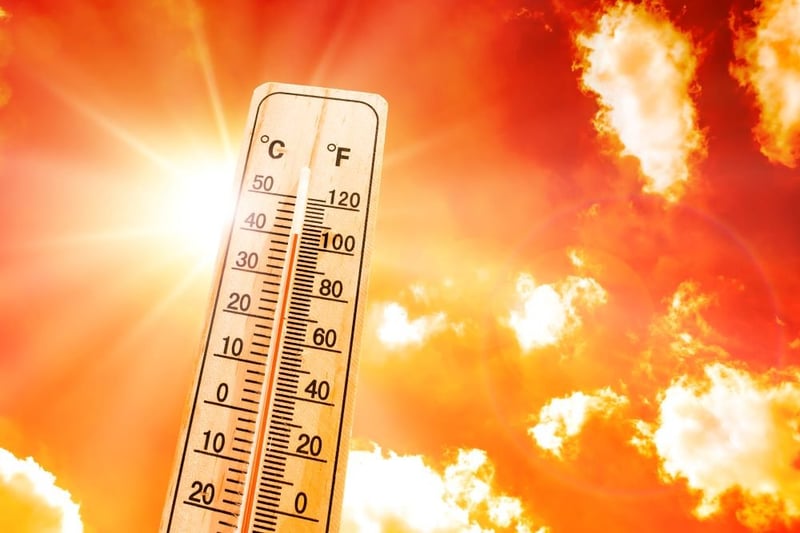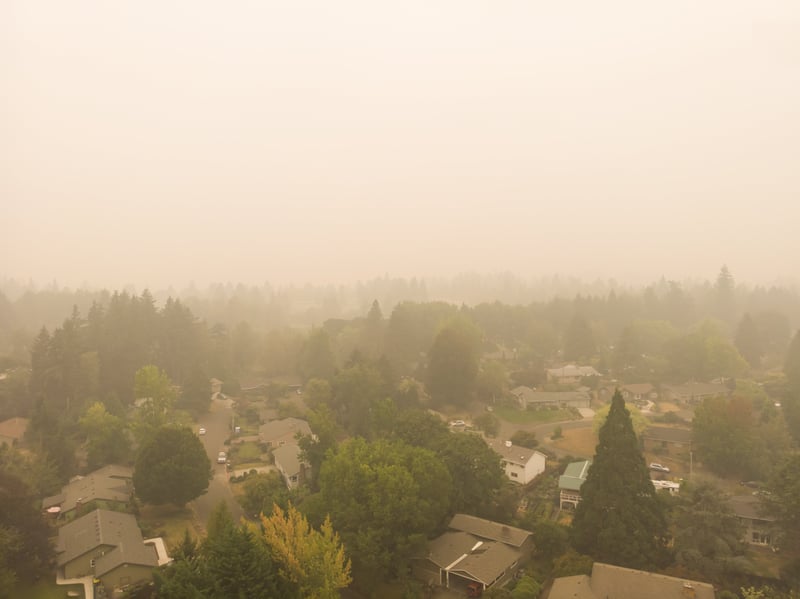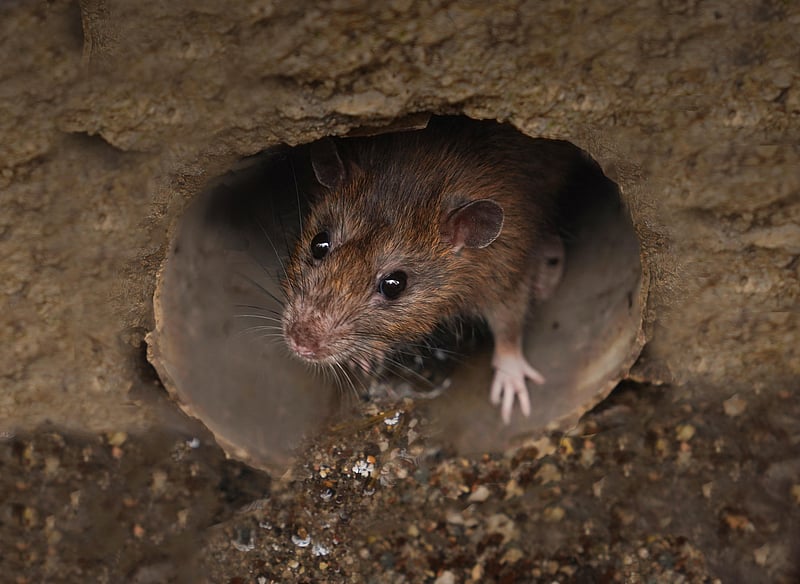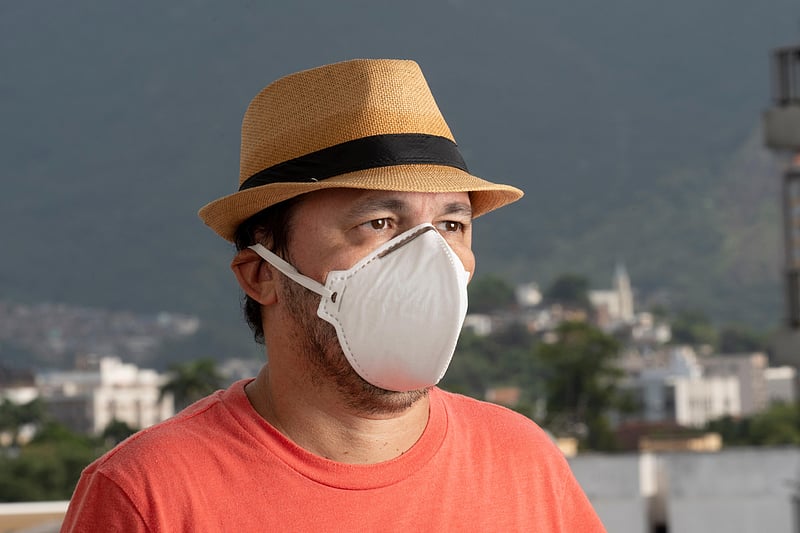Get Healthy!
Results for search "Environment".
18 Apr
Two Environmental Pollutants Linked to Thyroid Cancer in Children and Young Adults
A new study suggests early-life exposure to fine particulate air pollution and outdoor artificial light at night increases the risk of papillary thyroid cancer in children and young adults.
Health News Results - 294
President Donald Trump is undoing a long-standing scientific finding that says climate change threatens human health and the environment.
The move strips the federal government of much of its power to limit greenhouse gas pollution.
The decision targets the Environmental Protection Agency's (EPA) "endangerment f...
- I. Edwards HealthDay Reporter
- |
- February 13, 2026
- |
- Full Page
As people cut deeper into Brazil’s Atlantic Forest, mosquitoes may be changing who they bite, and a new study suggests they have a new favorite target: humans.
The Atlantic Forest once stretched across much of Brazil’s coast and was home to hundreds of animal species. Today, only about one-third of the forest ...
- I. Edwards HealthDay Reporter
- |
- January 19, 2026
- |
- Full Page
The U.S. Environmental Protection Agency (EPA) may soon stop putting a dollar value on the health benefits of cleaner air.
The move, experts warn, could lead to weaker protections against some of the most dangerous pollutants.
Internal agency emails and documents reviewed by The New York Times show that, under President
Trees don’t just clean the air, they also keep a quiet record of the past.
New research suggests that tree rings may help scientists uncover missing pieces of environmental history, especially when it comes to water in the midwest.
By studying how different tree species respond to wet and dry conditions, researchers say they can better understand how watersheds have chan...
- I. Edwards HealthDay Reporter
- |
- December 23, 2025
- |
- Full Page
After decades of intense focus on genetics, the biomedical research community is undergoing a major shift, focusing on a new framework called "exposomics."
Similar to the way scientists work to map the human genome, this emerging field aims to map the chemical, physical, social and biological elements a person encounters throughout their life.
Experts estimate that genetic mutation...
- Deanna Neff HealthDay Reporter
- |
- November 29, 2025
- |
- Full Page
A new Commonwealth Fund report offers the first state-by-state ranking of how vulnerable individual health and health care systems are to climate risks.
The report analyzed all 50 states and Washington, D.C., looking at factors like extreme heat, flooding and air quality,...
- Deanna Neff HealthDay Reporter
- |
- October 1, 2025
- |
- Full Page
Destroying the Amazon rainforest doesn’t just threaten the environment, it may also make people sick.
A study published Sept. 11 in the journal Communications Earth & Environment found that rates of certain diseases were lower in regions where forests were protected and managed by Indigenous peoples. ...
- I. Edwards HealthDay Reporter
- |
- September 12, 2025
- |
- Full Page
It’s a simple and common prescription for global warming and fire suppression: Plant more trees.
But where they’re planted makes a real difference, new research shows.
"Our study found more cooling from planting in warm, wet regions, where trees grow year-round," study first author James Gomez, a gradu...
- Carole Tanzer Miller HealthDay Reporter
- |
- August 24, 2025
- |
- Full Page
Forecasters say it will bypass a direct hit on the continental U.S., but the first hurricane of 2025 — Erin — is a strong reminder to have an emergency plan and know what to do if severe weather strikes.
Hurricane season runs through Nov. 30.
The U.S. Centers for Disease Control and Prevention (CDC) reminds Americans that high winds and rain on the coast can cause ...
- Carole Tanzer Miller HealthDay Reporter
- |
- August 19, 2025
- |
- Full Page
Urban dwellers have a higher risk of developing asthma, thanks to dirty air and lower amounts of green space, a major new study says.
In fact, better urban planning could prevent more than 1 in 10 new cases of asthma, researchers estimated recently in
The U.S. Environmental Protection Agency (EPA) is looking to remove the legal underpinning for most regulations against climate change.
If approved, the EPA’s proposal would rescind the 2009 decision that set forth a legal basis to regulate greenhouse gases as pollutants. Known as the "endangerment finding," it allowed the EPA to limit emissions from vehicles, power plants, and oil ...
- HealthDay Reporter
- I. Edwards
- |
- July 30, 2025
- |
- Full Page
Birds on a remote Australian island are so full of plastic they crunch, British researchers report.
They found plastic in the bellies of chicks less than 3 months old and a dead bird with 778 individual pieces of plastic packed into its tummy "like a brick," according to ecologist Alex Bond, principal curator at Britain...
- HealthDay Reporter
- Carole Tanzer Miller
- |
- May 24, 2025
- |
- Full Page
The spotted lanternfly is an invasive pest that can ruin grape, apple and hop crops and do terrible damage to maple and walnut trees.
Luckily, man’s best friend is on hand to help fight this insect foe, a new study published in the journal Eco...
- HealthDay Reporter
- Dennis Thompson
- |
- January 6, 2025
- |
- Full Page
Microscopic plastic particles in the air could be contributing to a wide variety of health problems, including lung and colon cancers.
Tires and degrading garbage shed tiny pieces of plastic which become airborne, creating a form of air pollution that’s not very well understood, a new review say...
- HealthDay Reporter
- Dennis Thompson
- |
- December 18, 2024
- |
- Full Page
In a move that further toughens safety standards for lead paint dust, the Environmental Protection Agency on Thursday announced the finalization of a rule that declares any detectable amount of the toxin in a home or child care center to be hazardous.
“Too often our children, the most vulnerable residents of already overburdened communities, are the most profoundly impacted by the t...
- HealthDay Reporter
- Robin Foster
- |
- October 24, 2024
- |
- Full Page
The U.S. Environmental Protection Agency on Tuesday finalized a rule that will require the removal of all lead pipes from the country's water systems.
“We’ve known for decades that lead exposure has serious long-term impacts for children’s health. And yet, millions of lead service lines are still delivering drinking water to homes,” EPA Administrator
The stress of living in a poor neighborhood might contribute to higher rates of aggressive prostate cancer in Black men, a new study warns.
Black men are more than twice as likely to die from prostate cancer than white men, and more likely to develop it as well, the researchers no...
- HealthDay Reporter
- Dennis Thompson
- |
- July 16, 2024
- |
- Full Page
San Francisco is on the verge of passing a ban on "forever chemicals" in the protective clothing firefighters wear while battling blazes.
City lawmakers are expected to pass an ordinance on Tuesday that will prohibit the use of firefighting...
- HealthDay Reporter
- Robin Foster
- |
- May 14, 2024
- |
- Full Page
Intense weather fluctuations caused by climate change could be contributing to an increase in stroke deaths, a new study claims.
Freezing cold fronts and broiling heat waves are associated with more than half a million deaths annually in recent years, researchers report April 10 in the ...
- HealthDay Reporter
- Dennis Thompson
- |
- April 11, 2024
- |
- Full Page
The Environmental Protection Agency announced Wednesday that it has finalized a first-ever rule that will drastically lower the amount of PFAS, also known as "forever chemicals," in the nation's drinking water.
"Drinking water contaminated with PFAS has plagued communities across this country for too long," EPA Administrator Mi...
- HealthDay Reporter
- Robin Foster
- |
- April 10, 2024
- |
- Full Page
Honey bees fly to flowers whenever the weather is right, and warmer autumns and winters are putting these crop pollinators at risk, researchers warn.
Using climate and bee population models, a Washington State University team showe...
- HealthDay Reporter
- Carole Tanzer Miller
- |
- March 26, 2024
- |
- Full Page
Nearly $6 billion in funding will soon be spread through every U.S. state and territory as part of a massive, ongoing effort to clean up the nation's water supply, the Biden Administration announced Tuesday.
- HealthDay Reporter
- Robin Foster
- |
- February 20, 2024
- |
- Full Page
Nearly 15% of Americans still deny that climate change is real, according to a new national assessment from the University of Michigan.
Evidence of climate change has been mounting, including science which has shown that climate-related natural disasters are growing in frequency and intensity sooner than originally predicted, researchers said.
Nevertheless, climate change is still n...
- HealthDay Reporter
- Dennis Thompson
- |
- February 16, 2024
- |
- Full Page
A much anticipated government study finds that military personnel stationed at Camp Lejeune in North Carolina between 1975 and 1985 face at least a 20% higher risk for certain cancers than those stationed elsewhere.
Why the increased risk?
For decades, the drinking water at the Marine Corps base was contaminated with industrial solvents,
It's easy to see the immediate health hazards of wildfire smoke, as people struggle to breathe through a sooty haze.
But a new study finds that harmful chemicals found in wildfire smoke can linger in a person's home for weeks after the immediate threat has passed, posing a continuing health threat.
The chemicals -- compounds called polycyclic aromatic hydrocarbons (PAHs) -- are high...
- HealthDay Reporter
- Dennis Thompson
- |
- January 5, 2024
- |
- Full Page
Unhealthy air from wildfires is causing hundreds of additional deaths in the western United States every year, a new study claims.
Wildfires have undercut progress made in cleaning America's air, and between 2000 and 2020 caused an increase of 670 premature deaths each year in the West, researchers report Dec. 4 in The Lancet Planetary Health journal.
"Our air is supposed t...
- HealthDay Reporter
- Dennis Thompson
- |
- December 5, 2023
- |
- Full Page
THURSDAY, Nov. 30, 2023 (Healthday News) -- The U.S. Environmental Protection Agency announced Thursday that it plans to require the removal of all lead pipes from the country's water systems.
The proposed rule, an ambitious effort that will cost up to $30 billion over the next decade, would affect about 9 million pipes that send water to homes in countless communities across the United S...
- HealthDay Reporter
- Robin Foster
- |
- November 30, 2023
- |
- Full Page
Controlled forest burns can prevent the sort of high-intensity wildfires that have plagued the Western U.S. and Canada as a result of climate change, a new study argues.
A low-intensity fire in the mixed conifer forests of California provides an estimated 60% reduction in the risk of a catastrophic wildfire, and that effect lasts at least six years, researchers report in the journal <...
- HealthDay Reporter
- Dennis Thompson
- |
- November 14, 2023
- |
- Full Page
Adding warning labels to meat about its impact on climate and health could lower its consumption, a new study suggests.
British researchers investigated what adding cigarette-style graphic warning labels to meat in a cafeteria setting might do.
"Reaching net zero is a priority for the nation and the planet. As warning labels have already been shown to reduce smoking as well as drink...
- HealthDay Reporter
- Cara Murez
- |
- November 1, 2023
- |
- Full Page
As sweltering summer days become more common, the number of Americans who die of heat-related heart problems or strokes could soar over the next few decades, a new study projects.
The study -- published Oct. 30 in the journal Circulation -- estimates that by mid-century the United States will see thos...
- HealthDay Reporter
- Amy Norton
- |
- October 30, 2023
- |
- Full Page
Climate change is bringing diseases once considered tropical afflictions to the United States, and new research warns that a parasite spread by sand flies may be the latest to join this growing list.
The Leishmania parasite causes several forms of the disease leishmaniasis, including cutaneous leishmaniasis, which causes skin sores. Cutaneous leishmaniasis infects up to 1 million...
- HealthDay Reporter
- Denise Mann
- |
- October 20, 2023
- |
- Full Page
Yellow fever may be resurfacing in the United States, thanks to climate change.
The mosquito-borne viral illness decimated southern U.S. cities from 1820 to 1905, and now a new report says it could return to those areas.
One of the potential reasons for a yellow fever resurgence? Global warming, because mosquitoes love warm, wet weather.
Exactly where yellow fever...
- HealthDay Reporter
- Denise Mann
- |
- October 18, 2023
- |
- Full Page
Air pollution from heavy traffic may be driving pregnancy complications and health concerns for infants.
Researchers who matched more than 60,000 birth records with air-monitoring data found that pregnant patients living in an urban area with elevated levels of nitrogen dioxide had higher rates of preterm birth.
This included delivery before 28 weeks, according to
While the hot, dry summer may have offered a break to people with some environmental allergies, that reprieve could be over.
Ragweed and mold are in the air this fall.
"This summer was good news for people who are sensitive to mold and pollen as there were little of those allergens in the air, but now that we're seeing more rain coming in after this drought, we're experiencing a big...
- HealthDay Reporter
- Cara Murez
- |
- October 14, 2023
- |
- Full Page
Raging wildfires, droughts, floods and record-breaking heat brought on by climate change are taking a toll on kids' already fragile mental health.
This is the main message from a new report by the American Psychological Association and the climate advocacy organization ecoAme...
- HealthDay Reporter
- Denise Mann
- |
- October 11, 2023
- |
- Full Page
Renting a home, rather than owning it outright, may speed up the body's aging process, a new study suggests.
Researchers found that when compared with people who owned their home outright (no mortgage), those who rented showed signs of faster "biological aging" -- which meant their body cells and tissues were a bit "older."
On average, the impact was equivalent to just a small fract...
- HealthDay Reporter
- Amy Norton
- |
- October 11, 2023
- |
- Full Page
Toilet bowls reveal much about the health of a community, alerting scientists to coming outbreaks of flu and other seasonal viruses, researchers say.
"Just one flush can hold a lot of information," said Kristine Du, co-author of a new Canadian study.
"Wastewater surveillance equ...
- HealthDay Reporter
- Cara Murez
- |
- October 11, 2023
- |
- Full Page
The signs of climate change are everywhere, from raging wildfires to flash flooding to soaring temperatures.
Now, a new study warns that things could get worse, with scientists reporting that even small increases in global temperatures will make some parts of the Earth too hot for humans to endure.
"As long as we continue to put greenhouse gases emissions into the atmosphere, we're...
- HealthDay Reporter
- Cara Murez
- |
- October 10, 2023
- |
- Full Page
Should Fluffy and Fido go vegan?
A new study says yes -- for the environment.
The United Nations Food and Agriculture Organization estimates that livestock are responsible for 14.5% of the greenhouse gas emissions. In response, some experts say eating ve...
- HealthDay Reporter
- Sarah D. Collins
- |
- October 5, 2023
- |
- Full Page
Extensive exercise regimens are keeping astronauts healthy and protecting their hearts during extended space missions, new research finds.
A study from scientists at UT Southwestern Medical Center in Dallas found no loss of heart mass or output, and no loss of function in the heart's ventricles, during flights that can last up to six months.
The findings could have implications...
- HealthDay Reporter
- Cara Murez
- |
- October 2, 2023
- |
- Full Page
Sweltering temperatures appear to fuel drug-related hospital visits, a problem that could be worsening with climate change, a new study suggests.
"We saw that during periods of higher temperatures, there was a corresponding increase in hospital visits related to alcohol and substance use, which also brings attention to some less obvious potential consequences of climate change,"said first...
- HealthDay Reporter
- Cara Murez
- |
- September 26, 2023
- |
- Full Page
Having safer neighborhoods, where families feel less stress, can help prevent child abuse, according to new research that supports this long-suspected theory.
When parents feel higher levels of stress or hopelessness about their surroundings, they may have a harder time caring for their children,
As working class neighborhoods gentrify, you'll likely see rents rise, pricey restaurants move in -- and maybe also a rise in gunshot wounds, researchers say.
In U.S. neighborhoods that gentrified, gun injuries were 62% higher than they were in similar neighborhoods that hadn't gone upscale, according to a new study.
Overall firearm incidence was also 26% higher in these gentrifyin...
- HealthDay Reporter
- Cara Murez
- |
- September 21, 2023
- |
- Full Page
More people around the world are exposed to wildfire smoke that has the potential to harm human health, and their numbers are growing, new research finds.
More than 2 billion people are exposed to at least one day of potentially health-impacting wildfire smoke each year, a figure that has grown by almost 7% in the past decade, according to a study led by Australian scientists.
Mor...
- HealthDay Reporter
- Cara Murez
- |
- September 21, 2023
- |
- Full Page
Brown rats found and analyzed near Atlanta now carry rat lungworm, researchers report.
It's a parasite that can trigger a dangerous brain encephalitis in both people and pets, and which now threatens a wide area of the U.S. Southeast.
Researchers in Georgia say the microscopic rat lungworm, known scientifically as Angiostrongylus cantonensis, typically begins its life cycle...
- HealthDay Reporter
- Ernie Mundell
- |
- September 20, 2023
- |
- Full Page
How big is a hospital bed's carbon footprint?
Pretty big, new research shows.
One hospital bed alone was roughly equivalent to the carbon footprint of five Canadian households, according to researchers studying a British Columbia hospital during 2019. They identified energy and water use and the purchasing of medical products as the hospital's primary energy hotspots, accounting fo...
- HealthDay Reporter
- Cara Murez
- |
- September 20, 2023
- |
- Full Page
Air pollution has long been known to harm the heart and lungs, but new research suggests it might also raise the risk of breast cancer.
Researchers at the U.S. National Institute of Environmental Health Sciences (NIEHS) and the National Cancer Institute (NCI) discovered that the largest increases in breast cancer incidence were among women who, on average, had higher levels of particulate...
- HealthDay Reporter
- Cara Murez
- |
- September 13, 2023
- |
- Full Page
When you have COVID-19, when are you most infectious? Researchers are getting closer to an answer, with a new study finding that folks exhale the highest amounts of virus during the first eight days of their illness.
Scientists found that patients exhale quite a bit of virus during the first several days -- as many as 1,000 copies of airborne virus per minute.
Those levels drop st...
- HealthDay Reporter
- Cara Murez
- |
- September 12, 2023
- |
- Full Page
Global warming has been linked to higher rates of asthma, heart disease and other health concerns. Now, new research suggests that rising temperatures across the planet may place pregnant women at greater risk for severe pregnancy-related illnesses, especially in their third trimester.
And this is likely to get worse in the near future, said study author
As waters warm across the United States and hurricanes and flooding season begins, the odds of being infected by flesh-eating bacteria are also rising, U.S. health officials warn.
According to a Sept. 1 health alert from the U.S. Centers for Disease Control and Prevention, a dozen types of the bacteria called <...
- HealthDay Reporter
- Steven Reinberg
- |
- September 6, 2023
- |
- Full Page
2026 © All Rights Reserved. Privacy Policy


